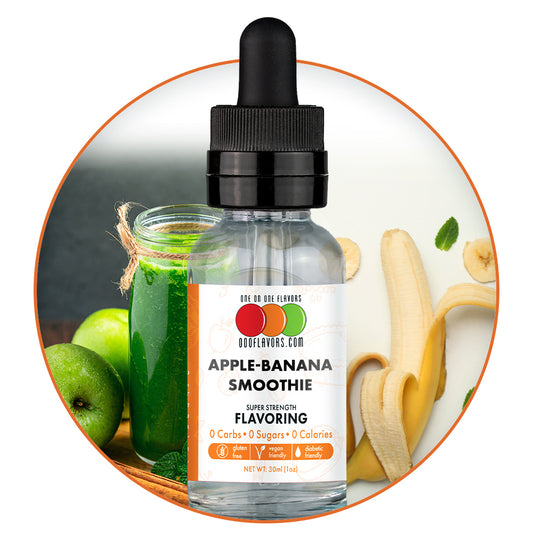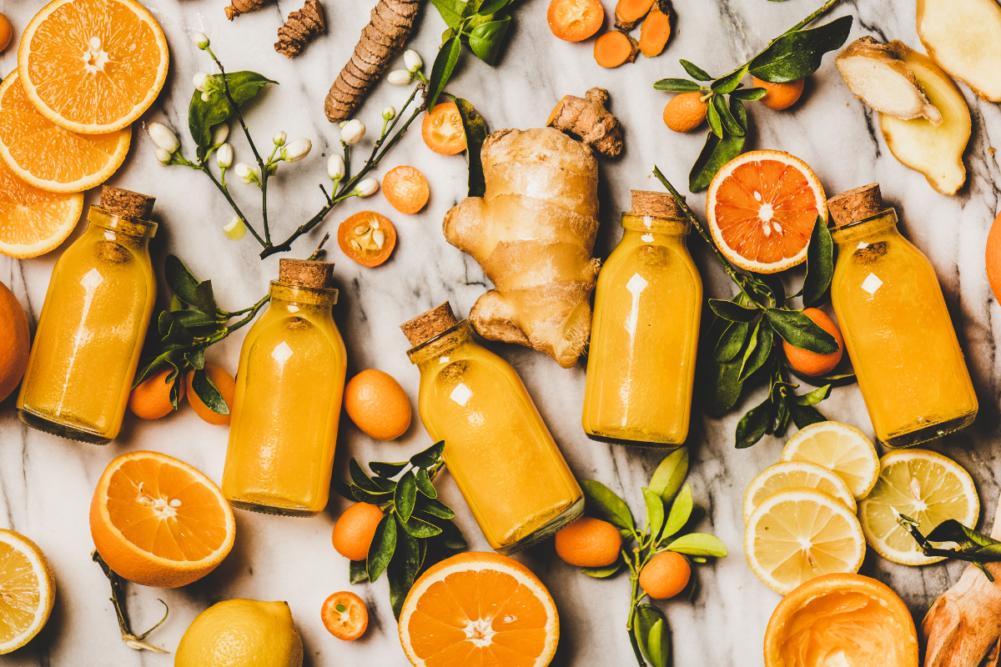
Flavor Concentrates For Beverages
Flavor concentrates are a popular ingredient for beverages. They can be used in the production of a variety of foods and drinks, including soda, energy drinks, and sports drinks.
A flavor concentrate is made by mechanically separating the flavor-rich components from a natural ingredient. They can be more intense and strong than extracts.
Authentic Flavors
The use of authentic flavors is a key ingredient in flavor concentrates for beverages. These products contain only natural or organic ingredients that are processed without chemicals. They may be used in drinks, food, and other applications.
These products are ideal for beverages that are made with water, juice or milk. They also can be used in alcoholic beverages such as cocktails or liqueurs. They are a great way to add flavor to these types of beverages, and they are easy to use.
Several manufacturers offer these products, and they are available in a variety of sizes. The most common size is a bottle that contains about a gallon of product. You can also get these products in a case that contains multiple bottles.
Many of these products are made from fruits and vegetables. This is because they are often rich in vitamins and minerals that can help support the overall health of the body. They are also a good source of fiber, sugar, potassium and vitamin C.
Another popular ingredient in these flavors is caffeine. This is because it can help boost energy levels and keep consumers alert. It can also help improve memory and reduce stress.
This is why many beverage companies choose to incorporate beverage flavoring caffeine in their products. They also find that this helps increase sales in their stores because it makes the drink more appealing to a wider audience.
Moreover, caffeine is known to give off a mildly acidic taste that complements some flavors. It is especially popular with fruit-based products. It is found in high concentrations in apples, cherries, and strawberries, so this makes it a perfect fit for apple-flavored beverages.
Other acids that are commonly found in fruits can be added to beverages as well. These include malic acid, which is found in most apples and other fruits. They can also be combined with other fruit acids to achieve a more natural, authentic flavor.
Another trend is the rise of mood-boosting flavors that are infused with herbs and botanicals that promote a positive state of mind. These can range from nootropics to adaptogens. They are also being incorporated into sports-nutrition products and herbal teas. This trend is being driven by rising consumer interest in wellness and health, as well as a growing demand for healthy beverages.
Versatility
Versatility is the ability to change and adapt to different situations. It is a skill that is useful to many people, especially those in the workplace. It is also a characteristic that is important to companies looking to hire and train new employees.
In the context of business, Versatility can mean being able to adjust your behavior to make others feel that their concerns and expectations are being met. It is a skill that can be learned, and it has been shown to improve individual and organizational performance.
The word versatile is derived from the Latin verb versatilis, which means “turning, revolving, moving, capable of turning to varied subjects or tasks.” It is most often used in reference to a person’s ability to perform multiple roles or skills. For example, a versatile actor can play multiple roles in a single movie or game.
A versatile athlete can play different sports, while a versatile musician can play several instruments. A versatile tool or machine can be adapted to many different purposes, and a versatile material can be molded to be flexible and useful.
When used in a recipe, versatility can refer to the ability of a flavor concentrate to withstand long exposures to high temperatures. For this reason, it is ideal for applications such as baking or pasteurization, although it does lose some of its flavor at very high temperatures.
Adding flavor concentrates to beverages can help them retain their freshness and optimum taste for longer. They can also be incorporated into frozen drinks, as well as into other beverages that are served cold, such as ice cream and smoothies.
Flavor concentrates can be made from a wide variety of ingredients, including a large number of fruits and vegetables. They are usually inexpensive and can be substituted for other raw materials when needed.
These types of flavors are also heat stable up to 400 degrees F, making them excellent for use in hot applications like baking and pasteurization. They can also be used in cold products such as ice cream and frozen yogurts, as they freeze readily at temperatures below freezing.
Ease of Use
Beverage formulators have several tools at their disposal when it comes to developing a beverage flavor profile that matches their unique needs and goals. One of those tools is extracts, which allow beverage creators to leverage a range of natural components to meet customized goals around flavor profile, processing needs, shelf life, and labeling requirements.
The advantages of using extracts over juices in beverages are many. They offer dependable flavor under a range of conditions, and they are also versatile, making it possible to use them in innovative formulations that address unique flavor challenges or opportunities.
For example, while juices typically come from a specific fruit or vegetable species and have a distinctive flavor character that can make them difficult to blend, extracts are made from numerous sources to deliver an array of unique flavors. This can be a major advantage in beverage development, as it means formulators can leverage a variety of unique, authentic flavors that can meet brand-specific flavor preferences and appeal across various platforms.
Another benefit of extracts is their ability to deliver consistency, which can be especially important in beverage development as it allows formulators to offer customers a consistent experience no matter where they buy their product. This can be particularly important when launching new brands or packaging changes, as well as for maintaining brand loyalty, says Karleskind.
Concentrates are also easier to transport and store than juices. This is important for formulators who may need to use flavor concentrates in a variety of formats, from ambient juice to coffee to tea.
In addition, flavor concentrates are more microbially stable than juices, which can help maintain freshness and prevent spoilage. This is especially helpful for refrigerated applications where the temperature can affect the flavor.
Flavor concentrates can also be used in a wide variety of applications, including baking, confectionary, cocktails/mocktails, coffee, Soylent, nutritional shakes, and molecular gastronomy. However, it is important to follow the instructions for each product and start with a small amount.
In many cases, adding a few drops of flavor concentrates can improve the flavor and mouthfeel of your beverages. You can then increase the amount of flavor concentrate added if desired for a stronger or lighter flavor. The key is to always follow the manufacturer’s directions and keep in mind that ingredients such as fat and sugar can impact how strong the flavor will be.
Shelf Life
The shelf life of a beverage product depends on the type of packaging used, the storage conditions and the consumer’s handling of the beverage after it is opened. This means that a drink should not be consumed before it has been properly packaged or if the package is not closed correctly. It also means that a drink should not be exposed to heat, humidity or extreme temperature conditions for an extended period of time.
Among the most important factors to consider in determining a beverage’s shelf life is the pH level of the flavorings used, as well as the water activity and amount of non-aqueous liquid included in the concentrate. Concentrated liquid flavorings having reduced pH and reduced water activity provide a more neutral flavor profile to the finished beverage than do traditional alcohol-based extracts, as well as provide increased shelf stability in beverage containers.
In addition, reduced water activity concentrated liquid flavorings described herein are bactericidal and prevent the germination of yeast and mold spores by beverage flavoring controlling the amount of available water for microbial growth. Because the concentration of water in concentrated liquid flavorings having reduced pH and reduced amounts of non-aqueous liquid (NAL) can be significantly lower than in conventional water-based flavorings, microbial growth is controlled more easily and effectively.
As a result, these concentrates can be stored in a variety of different types of containers, including plastic, glass and metal. They are ideally packaged in a bottle with a spout and a lid that is designed to be snap-fitted over the spout, thereby closing off access to the interior of the container.
Additionally, the spout of the flavoring concentrates can be dispensed through a valve that is designed to withstand pressure from a dispensing device, such as an air compressor or a similar unit. This ensures that the concentrated liquid flavorings are not dispensed unintentionally.
As a result, these concentrates are ideal for beverages that have low or medium viscosity, such as fruit juice and dairy-based beverages. They are also useful for beverages that have high viscosity, such as coffee and alcoholic drinks.


